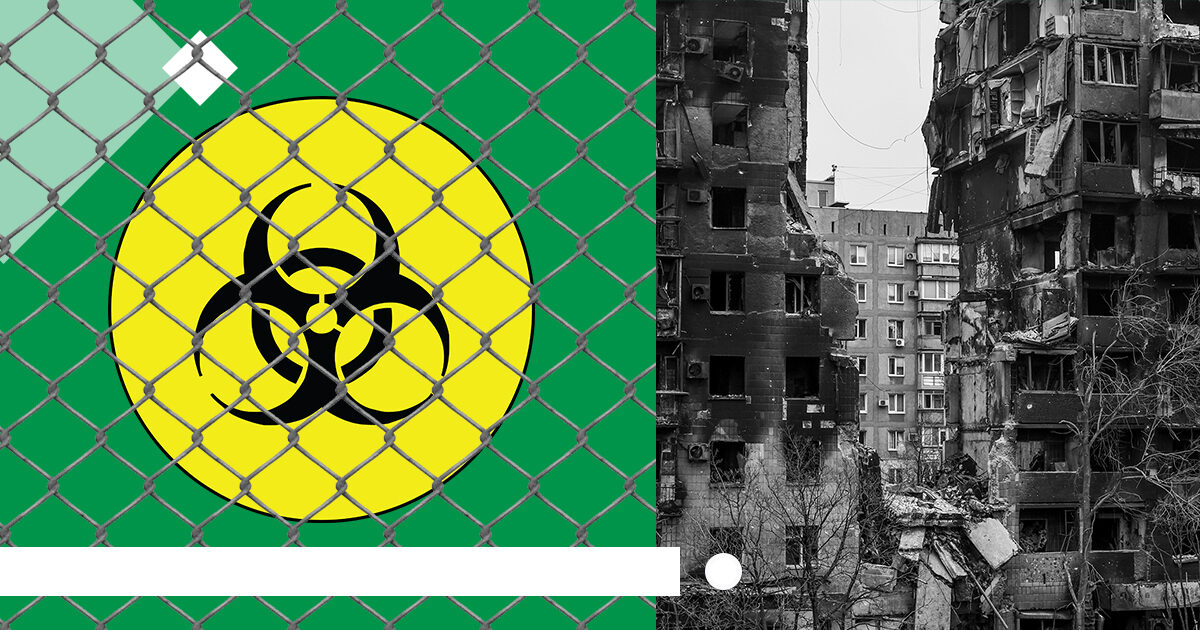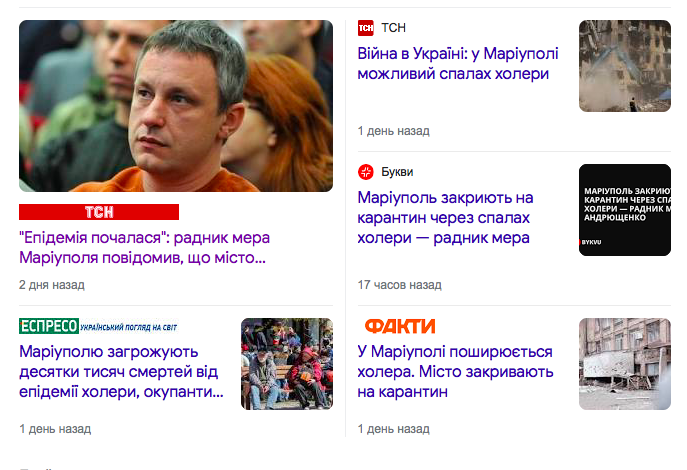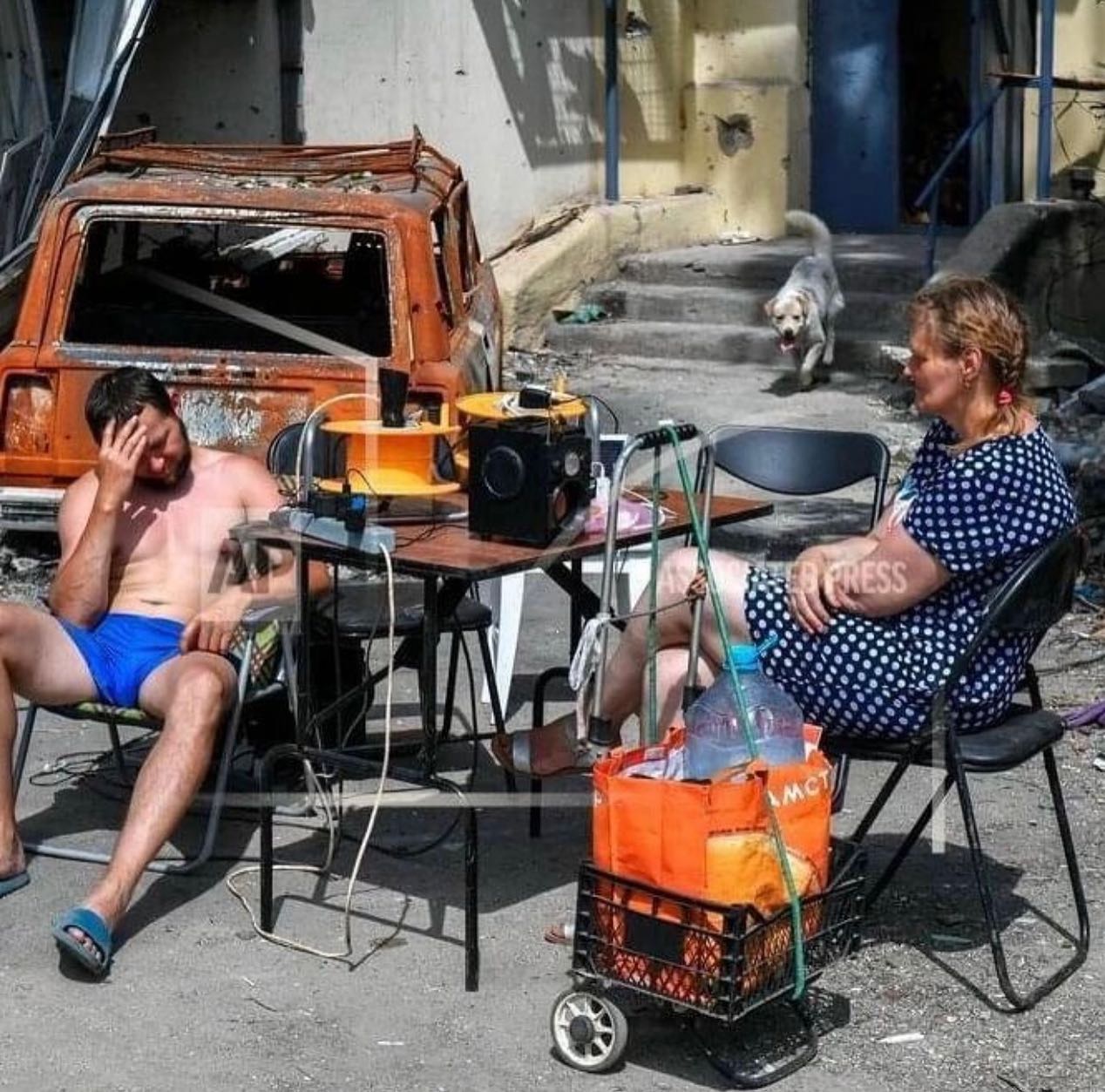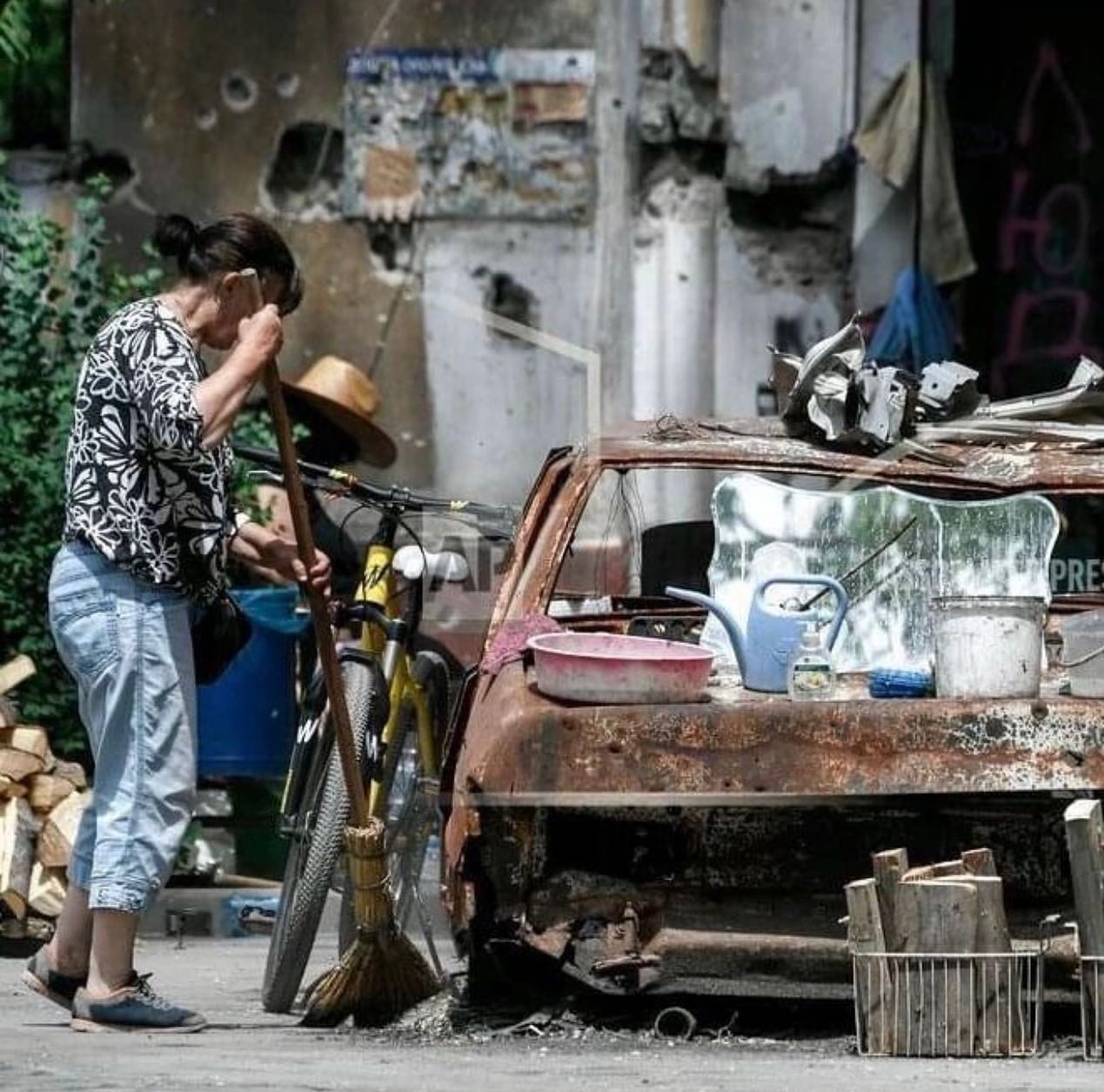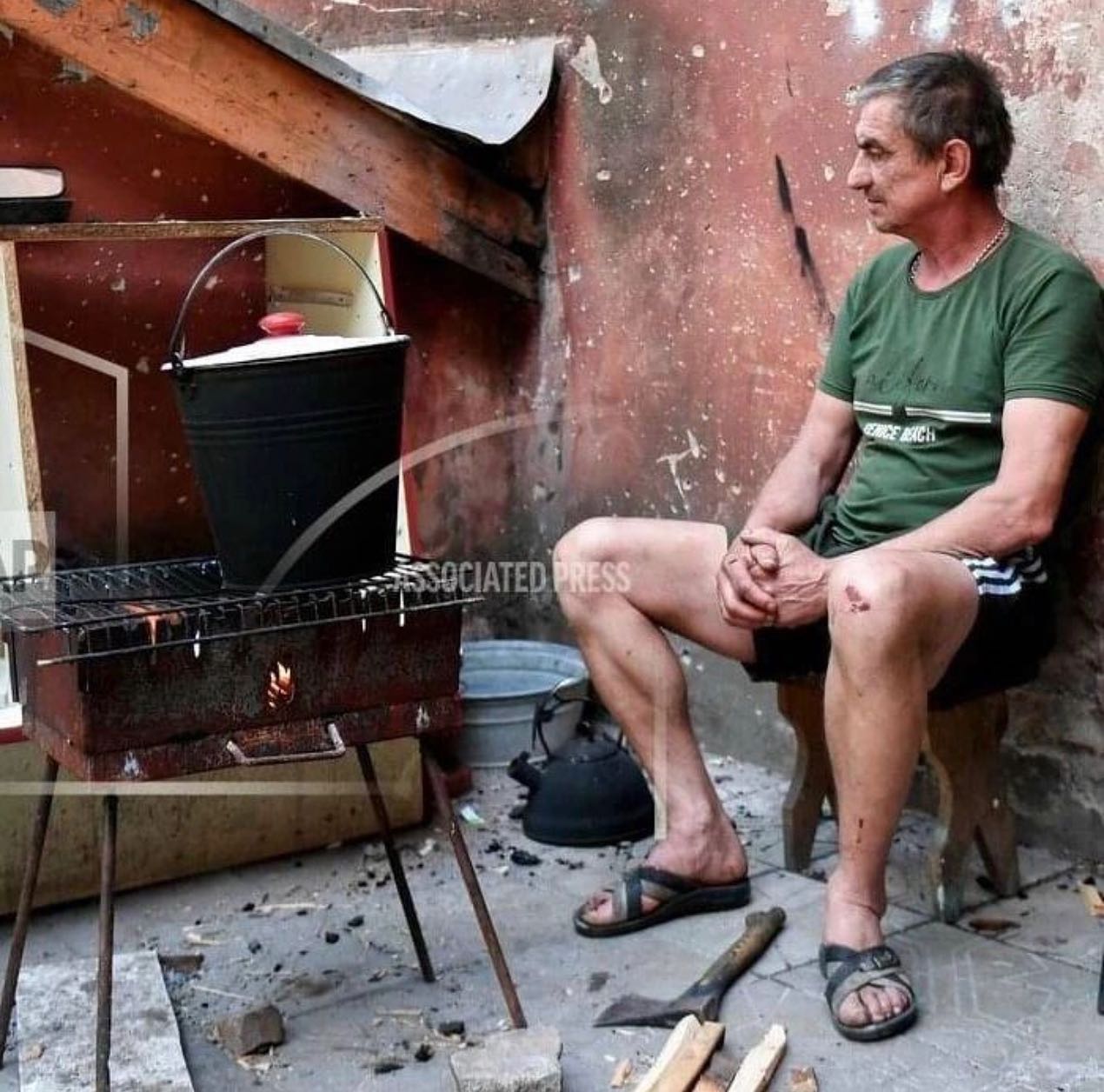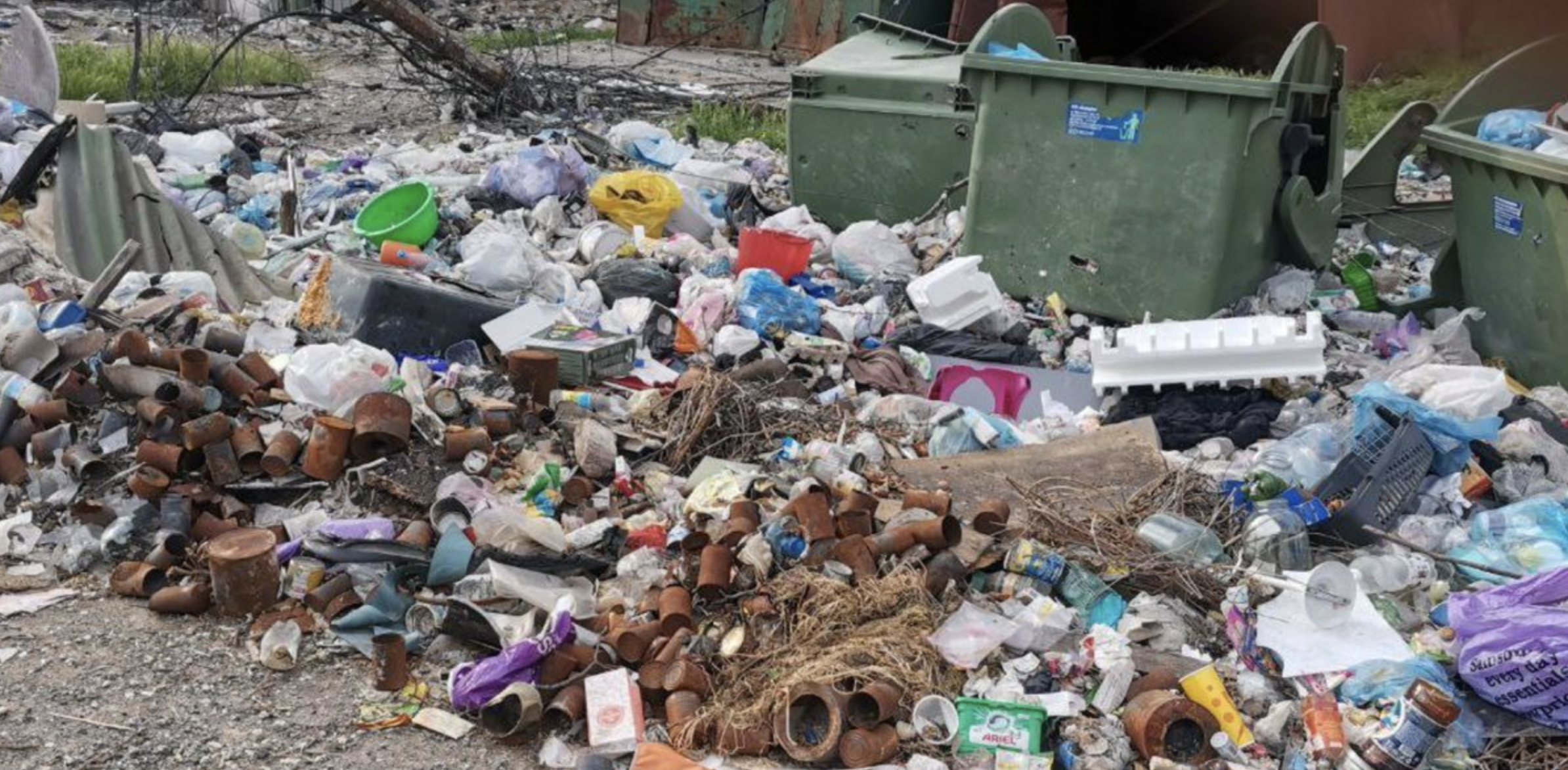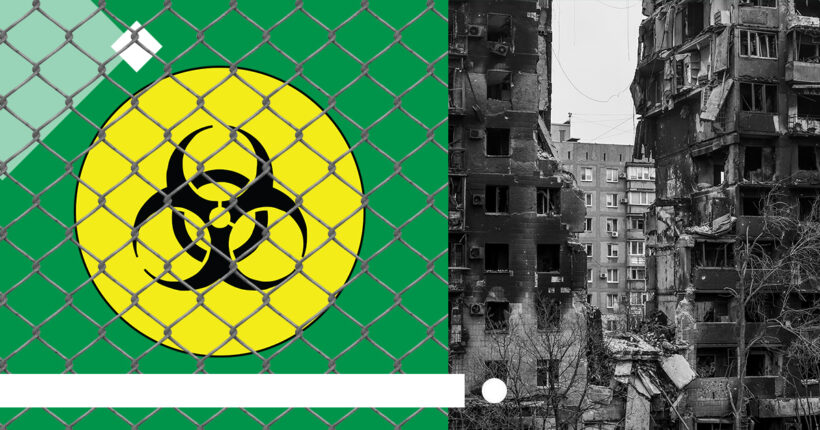
What is the problem?
Mariupol "closed" because of cholera and "corpse poison"
In recent days, Ukrainian news has been buzzing with headlines about tens of thousands of deaths because of an outbreak of cholera in Mariupol, dysentery, and a decision to close the city to quarantine. The media paint a horrible image from the Middle Ages and write that "corpse poison" is spreading in the town.
The Mariupol mayor's adviser, Petro Andriushchenko, first stated this information, only saying that the occupation authorities are talking about closing the city:
"Yes, indeed, we see the city being closed. There is information that russia has already prepared infectious disease departments in Rostov-on-Don, where the occupiers will be received. The word 'cholera' is heard not only in the WHO but also inside the city, among occupation authorities and their curators," the official said. He stressed that simply closing the city was "the most cynical way to fight the epidemic: just close the people in the city, leave everything as it is, whoever survives will survive."
What is the solution?
First, let's see what "corpse poison" is.
According to environmental security expert Maksym Soroka, because of the war, we observe not only pollution but also depletion and destruction of species and populations, even entire ecosystems, nature parks, depletion of our natural resources and their redistribution:
"Unfortunately, this war has created all the environmental disasters we could've imagined for us. Currently, throughout Ukraine, where there have been hostilities, we're witnessing significant air, soil, and water pollution and the sanitary and epidemiological situation deteriorating. It is a painful issue for Mariupol and all occupied and de-occupied cities and territories."
The number of mass graves in the occupied cities is egregious. In Mariupol, corpses and mass graves are still being found.
However, it's impossible to investigate what the situation in Mariupol is. The expert says one can only draw a parallel between Mariupol and the occupied cities in the Kharkiv, Sumy, and Chernihiv regions, where many corpses are on the ground or in the folds. It is dangerous, but Maksym emphasizes: "We see how such a term as corpse poison is spread on television, and as a specialist, it is strange to me."
The thing is that "corpse poison" is an outdated, almost medieval term. Substances released during the decomposition of corpses and any protein mass are also called "ptomaine." Ptomaines have a cloying, typically cadaveric odor, and, for the most part, they don't have toxic properties. Earlier, before toxicology, "ptomaines" meant the total impression of the unpleasant smell of carrion (caused, in particular, by some amines, products of microbial decomposition of proteins) and the danger of poisoning; a person could infect by corpses, animals that ate such meat, could've been poisoned. However, with science development, everything became somewhat more straightforward.
Thus, protein mass decomposition is accompanied by the gram-positive bacteria; it is a threat because it contains a variety of staphylococci, including Staphylococcus aureus, putrefactive bacteria, and more.
"That is why many of our activists and servicemen are actively clearing our territories. They're trying to remove all corpses from ravines, dugouts, and similar areas to ensure epidemiological safety. If it's not done, a cascading effect occurs when the whole ecosystem in this area begins to fall apart. So I fully agree with the World Health Organization that an epidemic is a risk. But don't forget that the immunity of a healthy person is robust, and it fights these bacteria powerfully. Another thing is when the body hasn't received multivitamins for many months and is exhausted," explains Maksym Soroka.
Secondly, cholera
Cholera is an acute infectious disease with a fecal-oral transmission, often characterized by the development of severe diarrhea, accompanied by significant disorders of water-ion metabolism and dehydration, which can be fatal. Combined with the fast-spreading element, it's a hazardous disease.
Since the nineteenth century, humanity has faced seven cholera pandemics, and during each of them, cholera was recorded in Ukraine. The last outbreak of infection in our territory was registered in 1970 in the Odesa region and Crimea. Since Ukraine returned its independence, cholera vibrios have been stably detected in the Black Sea, Azov Sea, Dnieper, Dniester, and Pivdennyi Buh River, indicating a stable natural presence.
The Mariupol mayor's adviser, Petro Andriushchenko, pointed out during the United News telethon that cholera occurring in the sea in early June was an annual phenomenon, and it was typical for Mariupol and the Sea of Azov. WHO spokeswoman Margaret Harris is in solidarity with him, confirming that cholera outbreaks have occurred in neighboring areas and Mariupol. Still, no data are available because no organization representatives are in Mariupol. Andriushchenko himself announced the first wave of cholera on June 6:
"Shallow graves and rotting garbage on the streets—all this falls into the water, the sea, and drinking water sources. The risk of epidemics is not just threatening. It's already at a level that we record isolated cases (as far as we can record) that the epidemic has begun," Andriushchenko said.
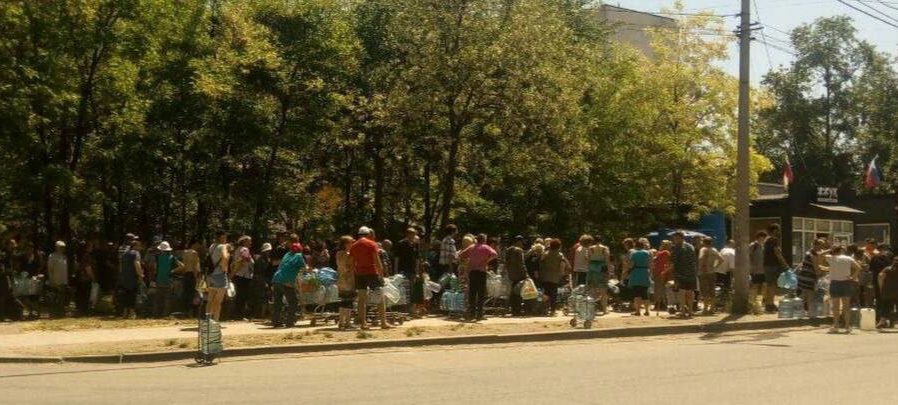
The line for "drinking" water in Mariupol. After receiving the water, a person still needs to boil it.
Andriushchenko noted that there was a risk of an epidemic: it can be cholera, an epidemic of dysentery, and any viral epidemic related to the gastrointestinal tract. However, the main reasons for it to occur are the lack of medications, the non-functioning medical system, and the lack of laboratories:
"It can occur because of unsanitary conditions. But the worst thing is that even such a seemingly trivial thing as dysentery in the current medical system, lack of drugs, lack of laboratories, lack of everything we are used to, and lack of vaccines in Mariupol can lead to tens of thousands of deaths. We should not await cholera," Andriushchenko said.
Is there a risk of an epidemic or not?
In a comment for Rubryka, Maksym Soroka pointed out that the information about the cholera epidemic promoted in the Ukrainian media resembles disinformation and information-psychological operation:
"We gave them a good argument to close the city, find a reason for them to quarantine the city, not to allow overseers or the Red Cross mission so that they can slaughter everyone there!" the expert said.
At the same time, Maksym Borodin, a People's Deputy of the Mariupol City Council, notes that it is impossible to obtain any objective information about the state of affairs in Mariupol. According to him, the city closure for quarantine is not established yet, but there are rumors that people are forbidden to visit the beaches, and it seems that it is because they are mined.
"Maybe, but we realize that all sewage and stormwater runoff goes to the sea without any treatment. Almost all the water mains were damaged; when the occupiers tried to give people water for their apartments, most of the water ended up near houses: it flooded all the potholes, all the places where there was rubbish and where people were buried. Water takes this microflora with it and gets to the sources where people take water. There are several in Mariupol, and people use them. So, most likely, the ban is not related to mining, but to Escherichia coli and other infections, especially now that it has become sweltering."
Instead, the occupiers claim that tap water in Mariupol is safe and the epidemiological situation is normal, but that, as is always the case with russians, is a lie. Maksym Borodin draws attention to the fact that the laboratories in the city, where it would be possible to conduct water analysis, are currently destroyed, so the question arises: how did they do it?
"As far as I know, there are no laboratories left in Mariupol; the former laboratory of the sanitary-epidemiological station in the city was burned and destroyed, and the russian army destroyed all equipment. Even the occupiers showed it on their television a month ago. No independent experts came to Mariupol either, and the russians did not let them in. Therefore, it is clear that no tests have been performed, and the probability of an outbreak of cholera or Escherichia coli exists."
What is the international community doing?
Lawyer, medical law specialist, and Deputy Minister of Health in 2014–2015 Natalia Lisnevska said that the humanitarian catastrophe created by the russians in Mariupol was a violation of the Geneva Conventions, and the court may recognize it as genocide of Ukrainians:
"There may be a cholera outbreak in Mariupol and the surrounding areas because we have problems with water supply, surface burials, mixing sewage water with drinking water, and humanitarian catastrophe. International conventions forbid it, it can lead to the death of people, and yes, it can be called genocide," she said.
Lisnevska also pointed out that the WHO was making similar predictions and preparing to supply necessary vaccines:
"Warned means armed. We are ringing all the bells and talking about the possibility. It is better not to use an extra vaccine, but we will know we are ready for a critical situation. So the positive is that we are drawing attention to this situation," Lisnevka said.
However, globally, the WHO is not responding yet, but only partially mentions the epidemiological situation in Mariupol; on June 7, Margaret Harris stated that the organization is ready to work with partners to support [Ukrainians, ed.].
What shall we do?
- Remove contaminants. The first and most necessary measure is to remove the corpses of people and animals, no matter how horrible it may sound; temporary burials must be transferred to specially designated cemeteries; remove debris, especially from ravines and other places where water accumulates.
- Time. Pathogens of infectious diseases can enter wells in various ways, through contact with buckets for water intake, domestic wastewater infiltration from latrine pits and toilets, littering, and even from animal carcasses (rodents, etc.). The risk will persist as long as the pathogens enter the water; each may remain in the water for a different time. For example, the lifespan of Vibrio cholerae is from a few days to several months; pathogens of typhoid fever and paratyphoid fever can survive in the mud at the bottom of the well for 2–3 weeks, and dysentery and leptospirosis stay in water for up to 2–3 months. At this time, you should refrain from consuming water from surface aquifers, like shallow wells.
- Disinfection. In the existing wells, it is necessary to carry out disinfection and appropriate cleaning with the means authorized for use in Ukraine for water disinfection. These included chlorinated lime, Aquatabs, Javel-Clade, Chloractive, and others. After preliminary disinfection, the wells are completely freed of water and cleaned of foreign objects and accumulated silt, and the log surface and bottom are disinfected. When the well is filled with water, it is completely pumped out, and after refilling, the water is disinfected. Remember that one should carry out all work with disinfectants in protective masks, goggles, and rubber gloves. If the disinfectant gets on exposed areas of the body or the eyes, rinse them immediately with plenty of water and consult a doctor.
- Tests. Laboratory testing can be available in Mariupol only after sanitary-epidemiological laboratories resume work. Only a specialist can say that the water is safe and doesn't contain pathogens.
- Hygiene. Hygiene rules, such as thorough hand washing, should be followed, especially before cooking and immediately before eating.
- Proper use. One should adequately treat food with heat, consume hot food, boil or treat drinking water, and use hygiene products. It must not be eaten if the product cannot be boiled/fried and cleaned (peeled, etc.).
- Drink only boiled or disinfected drinking water. Water disinfectants are usually sold in pharmacies. Do not drink ice unless you are sure it is made from safe water.
- Eat hot foods that have undergone thorough heat treatment. Ready-to-eat foods left for several hours at room temperature can become a source of infection without further heating.
- Do not eat raw seafood and other raw foods. Exceptions are fruits and vegetables you must clean yourself (from the skin, peel, etc.).
- Boil unpasteurized milk before drinking it.
- Ice cream from untested sources is often contaminated and can lead to disease. If in doubt, do not eat.
- Avoid food from the trays and do not buy food in places of unauthorized trade.
- Take measures to control flies. Avoid getting water in your mouth when swimming in pools. Follow the basic rules of personal hygiene (wash your hands thoroughly before eating and cooking, after going to the toilet).
Newsletter
Digest of the most interesting news: just about the main thing



